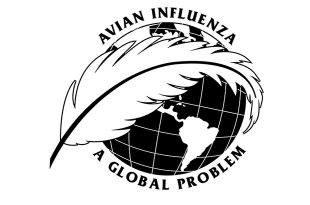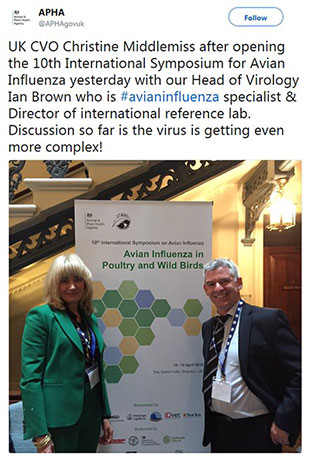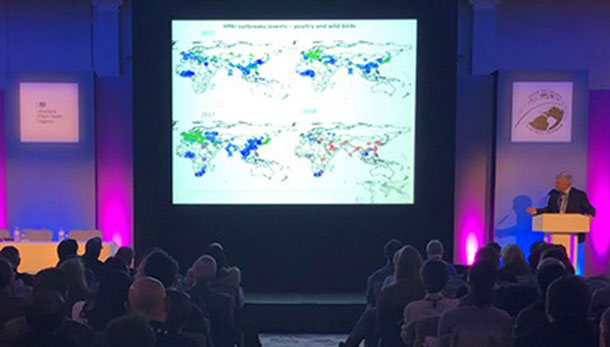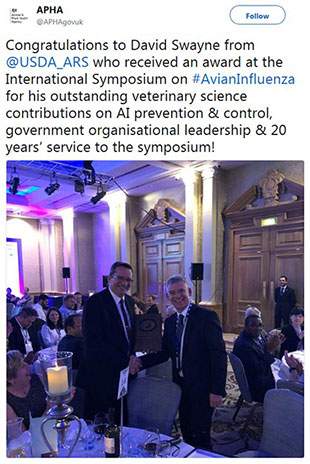 Ian Brown (Head of Virology at APHA and Director of EU/OIE/FAO International Reference Laboratory for Avian Influenza, Newcastle Disease and Swine Influenza) provides an update on this year’s international symposium on avian influenza that took place at the Grand Hotel in Brighton from 15 to 18 April.
Ian Brown (Head of Virology at APHA and Director of EU/OIE/FAO International Reference Laboratory for Avian Influenza, Newcastle Disease and Swine Influenza) provides an update on this year’s international symposium on avian influenza that took place at the Grand Hotel in Brighton from 15 to 18 April.
The symposium is held every 3 years, currently alternately between the UK and the USA.
Detailed planning for 2018 started over a year ago and with my excellent co-chairs - Dr David Swayne from USDA in America and Professor Thijs Kuiken from the Erasmus Medical Centre in the Netherlands and supportive scientific committee members from around the world – it’s safe to say that it met all our expectations with four days of lively scientific debate and discussion.
It enabled a global sharing of experiences and knowledge that will directly influence our approaches for control and prevention around the world to deal with the continuing and increasing threat posed by avian influenza to veterinary public health.

Four day programme

The symposium was attended by 315 delegates from 43 countries and brought together scientists, biologists, veterinarians, medics and government regulators to exchange and discuss current scientific information on avian influenza.
The 4 day programme included 82 oral presentations and 116 posters, covering a range of topics of particular relevance to veterinary health, wildlife health and aspects of human health.
Sessions included global updates, surveillance, epidemiology and ecology, transmission and pathobiology, vaccines and vaccination and diagnostic developments.
The conference was officially opened by Christine Middlemiss, Chief Veterinary Officer for the UK, who spoke about bird flu and the risks associated with the disease, what impact it has and the role of the government in preventing bird flu.
Other highlights included presentations on:
- Factors for infection risk and emerging findings from China relevant to global preparedness
- New models to study virus biology
- Advances in technology for faster diagnosis in developing countries
- New approaches to poultry vaccination
- Risk of highly pathogenic avian influenza (HPAIV) virus endemicity and intercontinental spread
- Influence of prior low pathogenic avian influenza virus infection (LPAIV) upon HPAI challenge
- Long term studies in wild birds, such as mute swans
- Factors affecting spill over from wild birds into poultry
- Cutting edge technology to trace wild bird migration


Conclusion
Feedback on the symposium has so far been very positive. Thanks go to all the sponsors, speakers and everybody who helped and took part to ensure this event was a success.
- Boeringer Ingelheim
- Ceva UK
- MSD Animal Health
- Gene Reach
- Bio Chek Smart Veterinary Diagnostics
- ID Vet Innovative Diagnostics
- American Association of Avian Pathologists
- American College of Poultry Veterinarians
- OiE Animal Health
- Offlu
- EcoHealth,
- European Union
- Welsh Government and Defra
ISAI 2021
We now hand the baton back to the USA, who will be organising the 11th symposium in April 2021.
Details to follow..
Follow APHA on Twitter and don't forget to sign up to email alerts.

Recent Comments